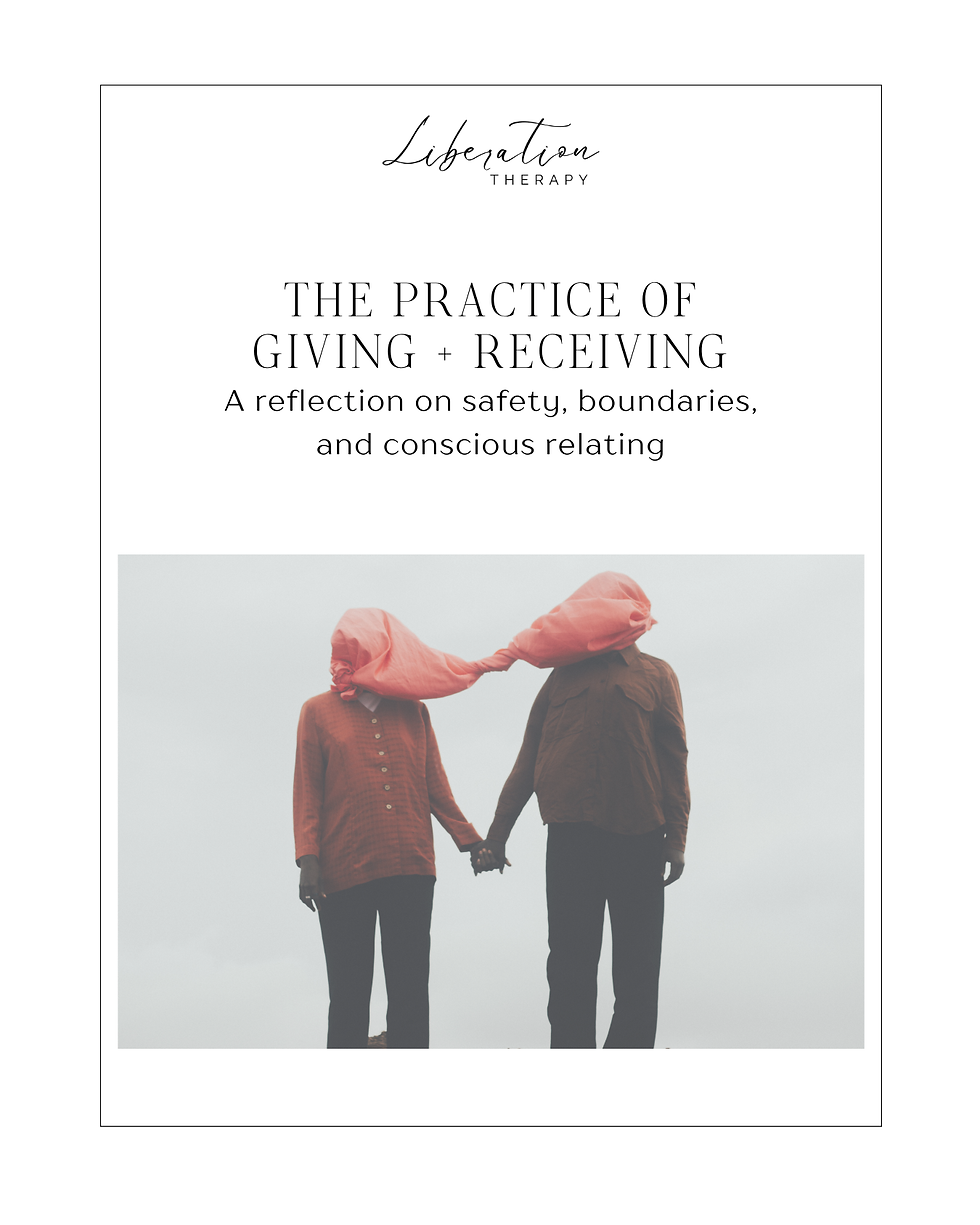The Space Between Us: Building Tolerance and Discernment in the Field of Misattunement
- Zero (aka Charlie Nicely)

- Oct 8, 2025
- 3 min read

“I spent the first half of my life learning how to stay, and the second half learning how to leave.”
— Zero Nicely
Misattunement is inevitable in human relationship. No two nervous systems share the same history, rhythm, or sensitivity. Even the most loving parent, partner, or therapist will at times miss the mark. These moments of disconnection are not failures — they are part of the living pulse of intimacy itself.
What wounds us is not misattunement, but the absence of repair. When the space between is ignored or dismissed, the body remembers aloneness. When it is met and repaired, the same space becomes a bridge that deepens trust.
Regulating the Nervous System
When early experiences of neglect or inconsistency shape our nervous systems, even small disconnections can feel threatening. The body tightens, the story takes over: “I’m too much,” “I’m not wanted,” “I’m alone again.”
But when we learn to regulate — through breath, grounding, and awareness — we expand our capacity to stay with discomfort. We can feel the ache of disconnection without collapsing into it. This is not detachment; it’s the spaciousness that allows reality to move through us without taking us under.
From this ground of regulation, misattunement becomes workable. We can recognize it as part of the rhythm of love — two beings attempting to find resonance within difference.
Spaciousness and Repair
Spaciousness is the ability to hold both our own activation and the imperfection of another without losing presence. It is the quiet center that watches, feels, and stays curious: “What’s truly happening here?”
When we rest in that space, we no longer interpret every bump as rejection. We can sense when a misattunement is simply part of relationship’s natural movement — and when it signals something deeper that needs tending. Secure attachment, in this way, is not about avoiding rupture but trusting repair.
Spiritually, this mirrors awakening: wholeness isn’t the absence of imperfection, but the capacity to meet it with awareness and warmth.
The Role of Discernment
Tolerance without discernment can turn into endurance — a subtle form of self-abandonment. Discernment is the clarity that lets us tell the difference between a human imperfection and a pattern that erodes our well-being.
From a grounded place, discernment speaks with precision:
“This is discomfort, not danger.”“This is repairable, or it is not.”
It’s the awareness that allows us to remain open while staying rooted in truth — to feel deeply without confusing intensity for intimacy or anxiety for love.
Chronic vs. Inevitable Misattunement
Inevitable misattunement is the ordinary friction of two inner worlds meeting. When acknowledged, it becomes a point of growth, deepening trust and flexibility.
Chronic misattunement, however, is the repeated and unaddressed gap — where one’s reality is consistently unseen or dismissed. Over time, it becomes an atmosphere of disconnection. Repair no longer feels possible, and the body begins to shut down.
Learning to feel the difference between these two experiences is a mark of healing. It allows us to recognize workable relationships and to step away from those that cannot hold mutual presence.
Recognizing Old Survival Patterns
As we explore misattunement, old survival strategies often reveal themselves:
Over-functioning to maintain safety,
Hiding to avoid conflict or loss,
Hyper-attuning to others at the cost of our own center.
When these patterns arise, we can pause and ask: Am I responding to this moment, or to an echo of the past? Awareness alone begins the repair — the turning toward ourselves that restores integrity.
The Workable Field of Connection
Healthy connection still includes misattunement. The difference is that repair is possible. Both people can return to presence and engage from self-awareness rather than defense. The relationship itself becomes a living field where two nervous systems learn to co-regulate instead of collapse.
In this space, spaciousness and discernment coexist. You can hold another’s imperfection without losing yourself — and you can walk away from chronic disconnection without guilt. That balance — of openness and self-trust — is what secure love feels like.
Integration: The Art of Staying Present
To build tolerance for misattunement is to build tolerance for life itself. It asks that we root more deeply in our bodies, stay awake to our patterns, and meet imperfection with both clarity and compassion.
When we can remain spacious in the face of rupture — neither collapsing nor defending — we begin to embody a different kind of security: one that arises not from the perfection of another, but from the steadiness of our own presence.
In this way, every moment of misattunement becomes an invitation — to ground more fully, to discern more clearly, and to love with greater truth.
Wholeness, after all, is not found in perfect attunement, but in our capacity to stay open and rooted within the beautiful imperfection of being human.



Comments